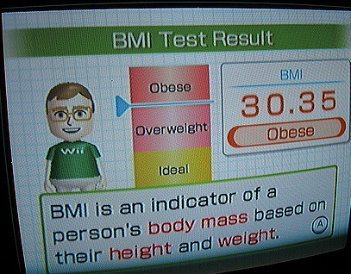Being Obese May Not Mean You Are Unhealthy
The obesity epidemic has received so much attention in the media that people now equate ‘obese’ and ‘unhealthy’ as if the two descriptions were synonymous and as if there was no way that a person could be healthy and obese. Part of this problem may stem from the widespread acceptance of the flawed Body Mass Index (BMI) metric in the medical community. As medical professionals turn away from the BMI as a measurement of whether or not someone is healthy, the public may begin to accept the idea that a person can be obese and healthy.
BMI And Being Obese
The BMI was created in the 1830’s by the mathematician Adolphe Quetelet, and it was intended to evaluate different trends in populations and not necessarily in individual patients. The fact that it is used to evaluate trends in individual patients today represents a degradation of the original purpose of the metric.
Studies have shown that people with a BMI between 25 and 26 have the lowest risk of mortality relative to their peers, in spite of the fact that a health BMI is supposed to be 24.9 or lower. People in the ‘mildly’ obese category were found to have the same risk of mortality as people in the ‘normal’ category, and the risk of mortality was only higher for people who were morbidly obese or very underweight.
A more recent study involving obese, very obese, and ‘normal weight’ individuals indicated that many people in the normal category can have poor cardiovascular or metabolic health, and many people who are obese or very obese can be in good metabolic and cardiovascular health, demonstrating that these people might be the victims of a faulty diagnosis.
Being Seen As Healthy At Any Size
The Health at Every Size movement has emerged with its own criticisms of evaluating a person’s health purely in terms of his or her weight.
People who are overweight and who do not have high blood pressure, high cholesterol, or high blood sugar could be considered healthy, especially if their waist sizes are below 35 inches for women and below 40 inches for men.
BMI does not take into account a person’s body composition, and people who are at extreme ends on the height  spectrum or the age spectrum tend to skew the results.
spectrum or the age spectrum tend to skew the results.
Letting Go Of The BMI
Given the dubious history of the BMI metric and the fact that it doesn’t seem to be a flawless predictor of a person’s health in practice, it is possible that the medical community will back away from relying upon it as heavily as they do now.
Telling obese people to adopt healthy habits rather than forcing them to lose weight may be a more realistic and ethical health measure.







